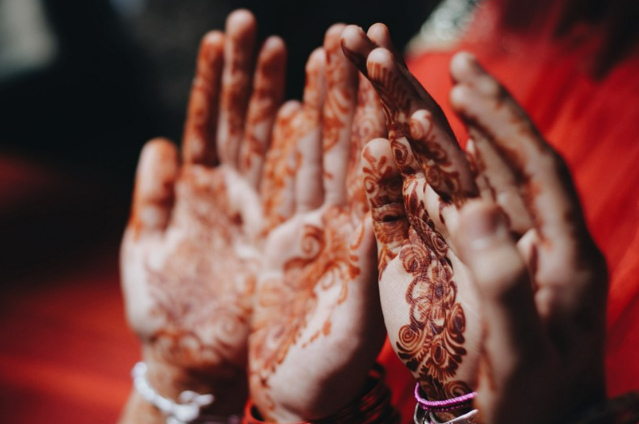
Image by tingey-injury-law-firm-unsplash
From time immemorial women's voices were unheard. But with changing times women are able to voice their rights and this has gained momentum with a strong judicial system. India is one of them with a strong judiciary system which is implementing many laws and making amendments to the constitutional acts to ensure gender equality and sharing equal rights to women.
There is a need that every Indian woman must know of her rights.
1) New Divorce law (2023):
Couples can now legally separate without assigning blame to either party for their relationship breakdown. Also called a 'no-fault' divorce.
2) Divorce on the grounds of cruelty and domestic violence (2014):
Cruelty or domestic violence is punishable and granted divorce according to Hindu Marriage Act 1955. It is an offense as it inflicts immeasurable mental agony and damage to a person along with physical assault. It is unjustifiable conduct to cause danger to life.
3) New labour laws (2019):
- It provides for the payment of equal wages for both male and female workers performing the same work.
- Women cannot be made to work more than 48hrs per week.
- Need of the hour is upskilling the female workforce so as to enable them to participate in the formal labour economy.
- Technology upskill training must be accessible to women equally.
- Maternity Benefit Act 2017 was amended to increase paid maternity leave to a period of 26 weeks for all establishments.
4) Pink tax: Popularly called gender-based pricing discrimination (2018).
India has recently scrapped the tampon tax (tax on menstrual products). Pink tax in India includes hygiene products, salons beauty and cosmetics, accessories, soaps, shampoos, deodorant, etc. which is based on the psychological aspect of women that they spend more for looks and appearance. But this is unfair as for the same quality of products men are charged less in terms of tax and GST. In 2018 controversial 12% tax on feminine products was reduced or almost eliminated.
5) New inheritance law(2022):
This suggests that women can inherit property from parents, grandparents, or relatives equally. It also suggests that a widow can seek help, support, and shelter from her deceased husband's family too. A married woman has the total right to sell, dispose or gift her property as per her wish. Supreme court in 2022 stated that daughters have the right to inherit their parents' self-acquired property. Daughters have the same obligations and rights as their sons.
6) Two-finger test/virginity test/ per vaginum test
Supreme court made the two-finger test unconstitutional in 2013. It involves a medical practitioner inserting two fingers into the vagina to test whether an insertion is done and if the hymen is ruptured. Even in rape cases also this test is not to be performed.SC observes that it violates the physical, psychological, and moral integrity of women and their privacy. Rape victims are more traumatized. Hence it's illegal now as per the court to perform this test.
7) Maternity Benefit (Amendment) Bill (2017):
It entitles women to a Maternity Benefit i:e full paid absence from work to take care of their child. Establishment employing 50 or more employees has increased maternity leave to 26 weeks.
8) Sabarimala Shrine Ban (2018):
Women and girls between Between 10 and 50 years were legally banned from entering Sabarimala from 1991 to 2018. But in September 2018 Judgement was passed by the Supreme Court of India stating that any exceptions placed on women because of biological difference is unconstitutional. It violated the right to freedom of religion and the right to equality. However several protests are not welcoming women as Shasta is a 'Celibate diety'.
9) Sexual Harassment of women in the workplace (Prevention, Prohibition and Redressal Act 2013):
It also includes the Protection of women from Sexual Harassment (POSH) ACT 2013.
This act defines sexual harassment in the workplace and creates a mechanism for the Redressal of complaints. It also lays down the procedures for a complaint inquiry and action
Every employer must constitute an Internal Complaint Cell at each branch with 10 or more employees and enjoy the power of civil courts.
The Ministry for Women and Child Development has launched sexual harassment electronic box (SHE-Box) which is an effort to provide Single window access to every woman wherein any woman can register a complaint through this portal.
10) New Criminal Law Amendment Act(2013)-Nirbhaya Act
Several new offenses have been recognized by Indian Penal code including acid attack, voyeurism, stalking, attempt to undress or disrobe a woman, sexual assault, rape offense leading to death or injury of a person the death or injury of a person, trafficking of people forced labour or forced sex) Furthur the criminal law (amendment) Act 2018 was enacted to prescribe even more stringent provisions including the death penalty for rape of a girl below the age of 12 years.
11) Triple talaq (2019):
It cannot be a ground for divorce as it is declared unconstitutional and has no significance. It is made a punishable act on August 1, 2019.
12) Ban on the sale of acid:
Over-the-counter sale is not allowed unless the seller maintains a log book or register. Acid attacks are included under Indian Penal Code made a separate section (326A) and made punishable with a minimum of 10 yrs or a life term with a fine.
Sellers have to register the stocks under Sub- Divisional Magistrate within 15 days.
The seller needs to sell acid only above 18 years who have to provide ID proof approved by the government of India.
13) Menstrual leave:
Supreme court on Feb. 24 said that there are different dimensions to 'Menstrual pain leave' which though is a biological process is a disincentive for employees to employ women in their organization.
14) Marriage age:
Lifted to 21 yrs for girls too.

Image by ravi-sharma-unsplash
15) Abortion law (Amendment):
The top court rules that a woman has the right to abort within 24 weeks irrespective of marital status (unmarried girls too) and is legal. However, those below 18 or mentally ill women must get the consent of a legal guardian.
Laws are stringent. Implementation must be strict. People are to be educated regarding the law of the country and the changing laws and it can be done right from schools.
Respect justice and law.
. . .
Reference:
www.legalservive.co
- india.com
- dristiias.com
- newspapers
